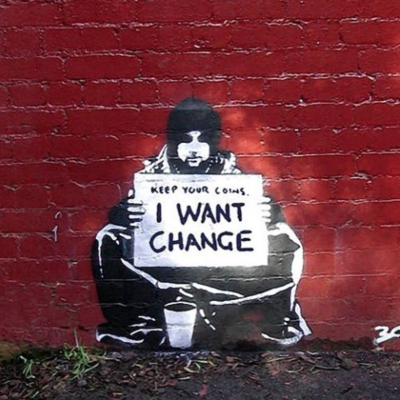
Today is World Social Justice Day!
Social justice is an underlying principle for peaceful and prosperous coexistence within and among nations. We uphold the principles of social justice when we promote gender equality or the rights of indigenous peoples and migrants. We advance social justice when we remove barriers that people face because of gender, age, race, ethnicity, religion, culture or disability.
For the United Nations, the pursuit of social justice for all is at the core of its global mission. This mission is to promote development and human dignity. The adoption by the International Labour Organization of the Declaration on Social Justice for a Fair Globalization is just one recent example of the UN system’s commitment to social justice. The Declaration focuses on guaranteeing fair outcomes for all through employment, social protection, social dialogue, and fundamental principles and rights at work.
February 20 is World Day of Social Justice
The General Assembly proclaimed February 20 as World Day of Social Justice in 2007. The General Assembly invited Member States to devote the day to promoting national activities in accordance with the objectives and goals of the World Summit for Social Development and the twenty-fourth session of the General Assembly. Observance of World Day of Social Justice should support efforts of the international community in poverty eradication. In addition, it supports the promotion of full employment and decent work, gender equity and access to social well-being and justice for all.
Who was Paul Farmer?
Paul Farmer believed that everyone deserved respect and care, especially when they are sick. He refused to accept the gross health inequities that exist around the world. Farmer wanted to provide the highest quality health care to the poorest people everywhere. He believed in Social Justice, that everyone deserved respect and care, especially when sick.
Paul Farmer, World Social Justice Day and Partners in Health
In 1987, fresh out of his medical training in Boston and more than a decade before global health was a recognized academic field, Paul and a few of his colleagues founded Partners In Health (PIH). Paul was the main inspiration for many of its efforts.
In the 1990s, PIH demonstrated successful use of second line therapies to treat multidrug-resistant tuberculosis in Peru and of antiretroviral drugs to treat AIDS in Haiti. He bunked the widespread belief that treatment successes for both diseases were impossible in resource-limited settings. PIH then went on to establish health facilities in Haiti and Rwanda, where Paul spent much of his time teaching countless numbers of physicians, nurses, and students. When Ebola broke out in West Africa in 2017, PIH established Ebola treatment facilities in Liberia and Sierra Leone. All told, PIH has helped strengthen government health systems in more than a dozen countries.
Infectious Diseases and Social Change
At home, Paul launched in 1997 a unique Program in Infectious Diseases and Social Change in the Department of Global Health and Social Medicine at Harvard Medical School. He became Chair of the department in 2009. The following year he established the Program in Global Health and Social Change. This expanded his earlier program to include a much larger set of diseases. The Program emphasizes the importance of understanding the political and social causes of disease. It drew upon faculty expertise in the social sciences, bioethics, economics, epidemiology, and the history of science.
It also seeks to implement and evaluate novel strategies for health-care delivery that are locally acceptable, effective, and equitable. Faculty in the department teach students from the undergraduate to the postgraduate level who seek to understand medicine and the social forces that affect health, both in the United States and in local field sites globally, many of these linked to PIH.
A Loving Spirit
Paul’s love of treating patients and his spirit of service gave him strength. He was kind and gentle to his patients. Many have referred to him as a champion. He was willing to take on worthy challenges, no matter their scale. Where others feared barriers, Paul saw tremendous need. The ideas and beliefs in social justice and equity that he advocated for are the foundations of global health today. Because of Paul there are many around the world who are striving to make the world a better place. He was a one-in-a-generation person.
#worldsocialjusticeday #social #justice #socialjustice #equality #humanity #humanrights #equal #access #employment #poverty #socialdevelopment #protection #jobs #fundamental #rights #worldwide #change #progress #peace #prosperity
